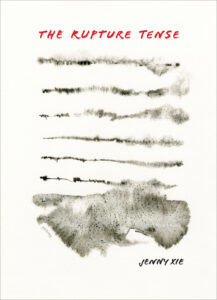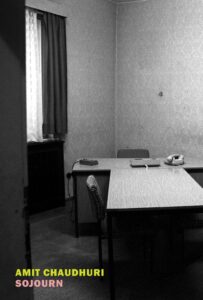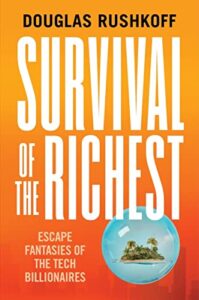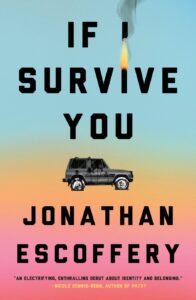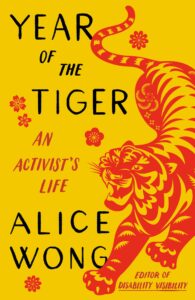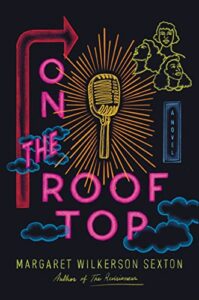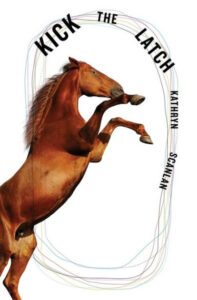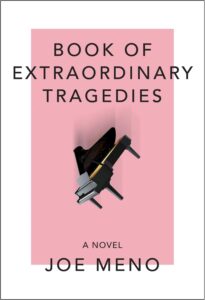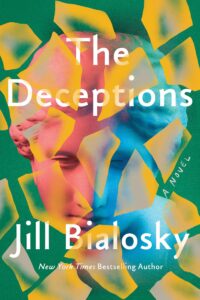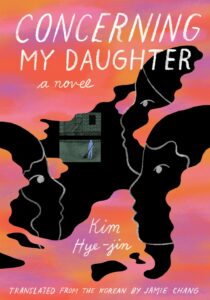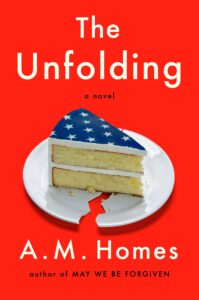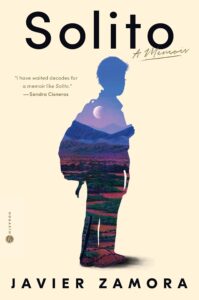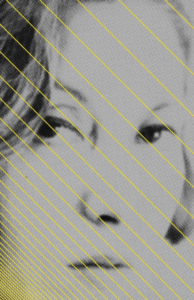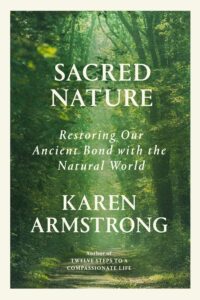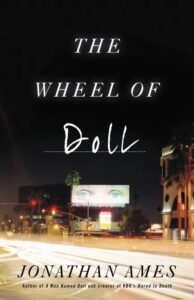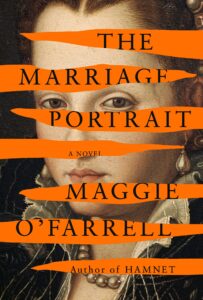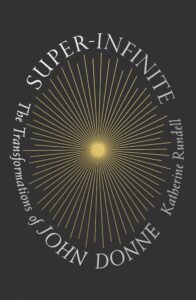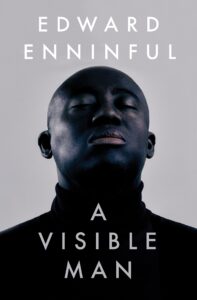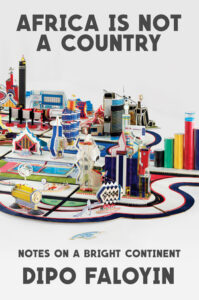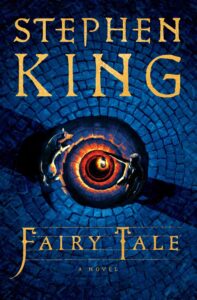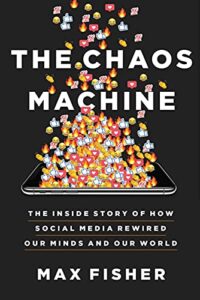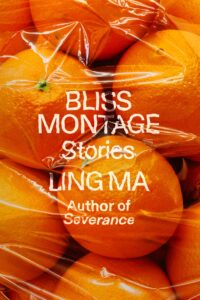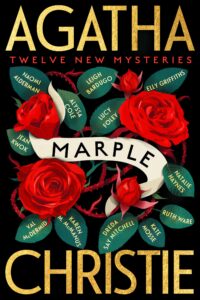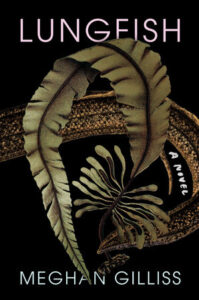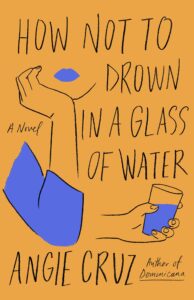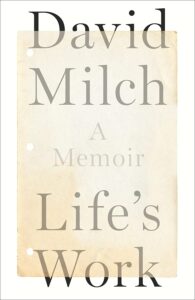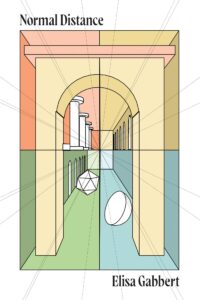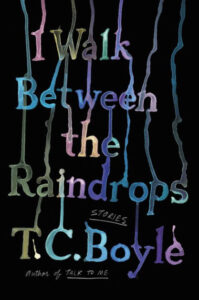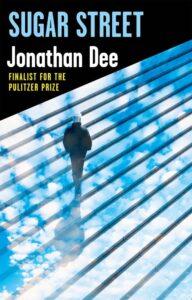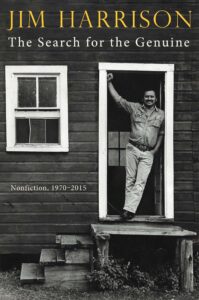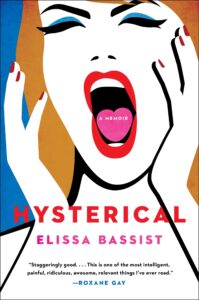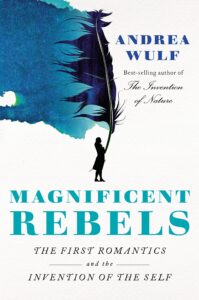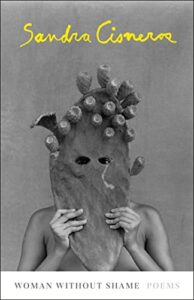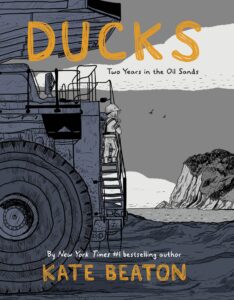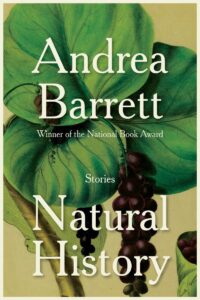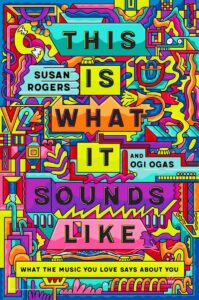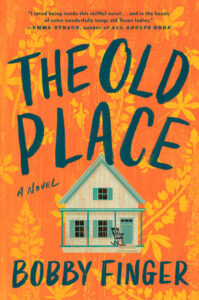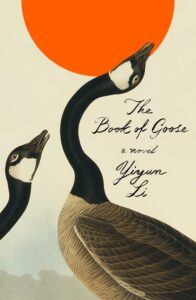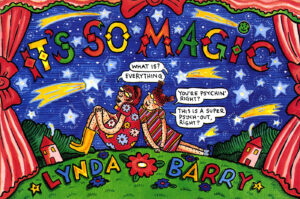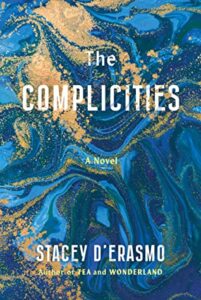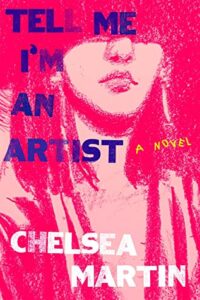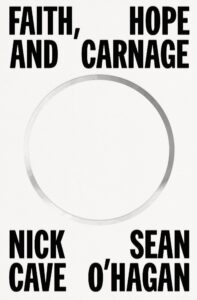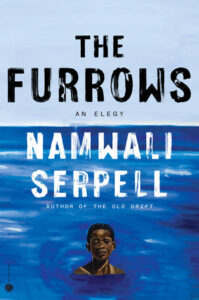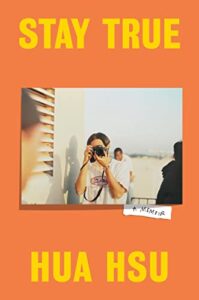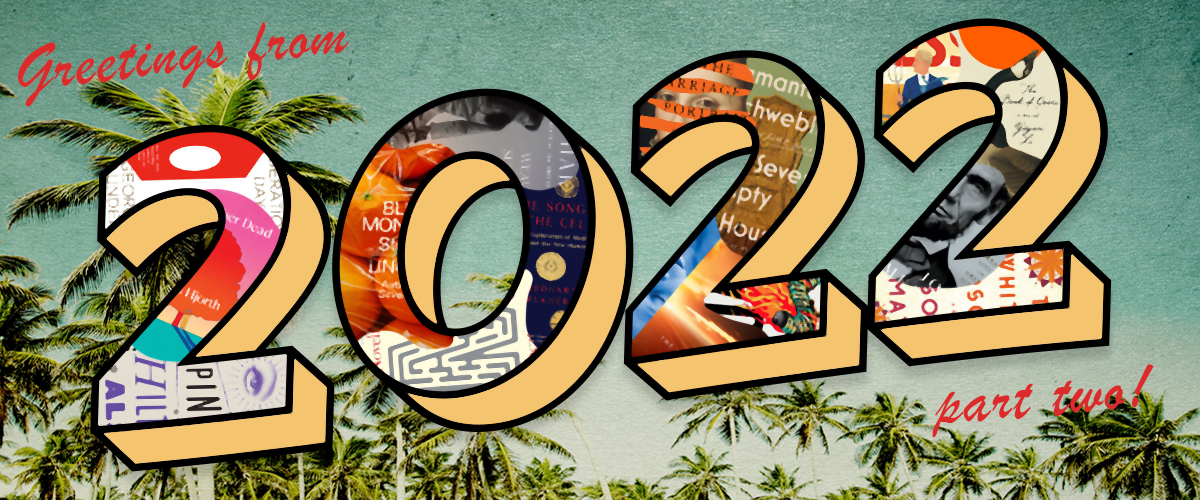
Lit Hub’s Most Anticipated Books of 2022, Part Two
230 Books to Read Before 2023
SEPTEMBER
Jenny Xie, The Rupture Tense
Graywolf, September 6
Line after line, sentence after sentence, whenever I encounter the poetry of Jenny Xie I find myself stuck in small breathless moments of wonder at what the hell she just did. This line, for example, from her last collection, Eye Level: “I can shake out the imprint of my body on the sheets each morning. Harder to shake out the mind.” I have since sought out her work wherever I can find it, and am excited it will be collected in The Rupture Tense, forthcoming from one of America’s great publishers of poetry, Graywolf. –JD
Amit Chaudhuri, Sojourn
NYRB, September 6
This slim new novel from author and critic Chaudhuri is described as a “dramatic and disconcerting work of fiction, a book about the present as it slips into the past, a picture of a city and of a troubled mind, a historical novel about an ostensibly post-historical time, a story of haunting.” That is to say, the perfect kind of strange little book to lead us into fall. –ET
Douglas Rushkoff, Survival of the Richest: Escape Fantasies of the Tech Billionaires
W.W. Norton, September 6
If you, like me, have a morbid curiosity about the batshit mentalities of our new billionaire tech oligarchs, Survival of the Richest will be right up your alley. Theorist Douglas Rushkoff explores the inception and implications of The Mindset, a “Silicon Valley-style certainty” that—with enough money, and absolutely zero moral qualms—these depraved tech bros will be able to survive the impending societal collapse of their own making. Fun! –ES
Jonathan Escoffrey, If I Survive You
MCD, September 6
This debut from Stegner Fellow Jonathan Escoffery, who won the Paris Review Plimpton Prize for Fiction in 2020, is a collection of interconnected stories about a Jamaican American family in Miami that Marlon James describes as “kaleidoscopic, urgent, hilarious, revelatory and like nothing you’ve read before.” Sold. –ET
Alice Wong, Year of the Tiger: An Activist’s Life
Vintage, September 6
When the anthology Disability Visibility came out two years ago, it centered a severely underrepresented community. Those essays, collected and edited by Alice Wong, spoke to the nuances of living with a disability today. With Year of the Tiger, Alice Wong is giving us a glimpse at her own journey as an Asian American disability activist. It’s not so much a memoir or a collection of essays as it is a scrapbook, an inviting look at one of our most important community-builders. She manages to establish community even within this book; throughout, you’ll also find art by disabled and Asian American artists; Alice Wong’s commitment to her cause is felt on every page. –KY
Margaret Wilkerson Sexton, On the Rooftop
Ecco, September 6
Set against the backdrop of a gentrifying black neighborhood in 1950s San Francisco, Sexton’s latest is a big-hearted family story about an ambitious stage mother whose dreams for her three daughters’ musical careers come into conflict with the girls’ own changing desires. Sexton’s previous novel, 2019’s The Revisioners, was a New York Times Book Review Notable Book of the Year and received a NAACP Image Award for Outstanding Literary Work, so expectations are high for her follow-up. –DS
Kathryn Scanlan, Kick the Latch
New Directions, September 6
The latest book from the author of Aug 9–Fog and The Dominant Animal is as fascinating and formally inventive as we have come to expect—the story of one woman’s life, based on transcribed interviews with a former racehorse trainer, and told in brief vignettes of voice, in what Lydia Davis calls “a magical act of empathic ventriloquy.” –ET
Joe Meno, Book of Extraordinary Tragedies
Akashic, September 6
Joe Meno writes with a humor and tenderness that sometimes doesn’t feel made for this bleak hour of history… Or. Maybe it’s exactly what we need right now? Book of Extraordinary Tragedies tells the story of two southside Chicago siblings—erstwhile musical prodigies—forced back together in their early twenties by unforeseen circumstances, groping around for meaning as they struggle from one day to the next working whatever odd job is available to them. Meno reminds us that though family’s do, in fact, fuck you up, sometimes they’re the only thing that can put you back together. –JD
Jill Bialosky, The Deceptions
Counterpoint, September 6
Jill Bialosky’s latest has several key phrases calling out to me: the Greek and Roman gods, afternoons spent at the Metropolitan Museum of Art, a poet/teacher struggling with her work and marriage, and the vague hints of a “betrayal” committed by a male colleague, a fellow poet and presumably Bad Art Friend. Just the sweet sort of academic intrigue I always crave in the fall. –ES
Kim Hye-jin, tr. Jamie Chang, Concerning My Daughter
Restless Books, September 6
We love a good mother-daughter journey! In Kim Hye-jin’s debut novel, we meet a widowed mother who simply wants the best for her child—but only if that involves a respectable job and a good husband. When her daughter comes home with a serious girlfriend, tensions arise. It is a heartfelt story about family struggle, and the ways we might bridge the gaps between generations. This novel raises poignant questions about family, choice, and the possibilities that unfold when you take the reins of your life in your own hands. –KY
A.M. Homes, The Unfolding
Viking, September 6
A.M. Homes’ first novel since her Women’s Prize-winning May We Be Forgiven tackles a sore subject: the election. Not the 2016 election—the 2008 election, which upends the life of a character called the Big Guy, who “taps a group of like-minded men to reclaim their version of the American Dream.” (Don’t worry—he’s not a hero.) Nathan Hill describes the book as “a story about what happens when truths that once seemed self-evident turn out to be neither self-evident nor even true… hilarious and shocking and heartbreaking and just a little bit deranged—in other words, it’s a book that feels like what it feels like to be alive right now.” –ET
Javier Zamora, Solito: A Memoir
Hogarth, September 6
God help me, I love a poet memoir—especially one by a poet whose work I already know and adore. Zamora’s tells of his journey from El Salvador to the US when he was nine years old—accompanied by strangers, hoping to reunite with his parents. I expect great things. –ET
Clarice Lispector, tr. Margaret Jull Costa and Robin Patterson, Too Much of Life: The Complete Crônicas
New Directions, September 6
From 1967 to 1973, Clarice Lispector addressed her readers in short pieces called crônicas for the widely-read Jornal do Brasil, where she had the freedom to expound a variety of topics. The result was a series of fascinating essays, presented here in a collection from New Directions, which calls them “chatty, mystical, intimate, flirtatious, and revelatory.” In other words, all the things we love about Lispector, in a new form and given a new home. –CS
Karen Armstrong, Sacred Nature: Restoring our Ancient Bond with the Natural World
Knopf, September 6
Sure, civil rights in this country are rapidly declining and America-as-a-democratic-experiment seems on the verge of collapsing but… have I mentioned what’s going on with the climate? Ugh. It can be hard to find hope these days. But as historian of religion Karen Armstrong shows in Sacred Nature, humanity has always sought spiritual comfort and emotional sustenance in the natural world, experiencing wonder and calm in a way that transcends cultural differences the world over. This is our home, and if we don’t get back in touch with it soon, it will be gone. –JD
Jonathan Ames, The Wheel of Doll
Mulholland Books, September 6
Jonathan Ames—no matter how dark or weird or uncomfortably personal the subject—has always been a fun writer to read. Though I missed the first in the Happy Doll detective series (A Man Named Doll), I’m looking forward to the follow-up, in which the eponymous gumshoe goes in search of an old love, who may or may not be real, in a case he probably shouldn’t have taken in the first place… –JD
Maggie O’Farrell, The Marriage Portrait
Knopf, September 6
In 1550 Italy, the life of the young duchess Lucrezia de Medici is thrown into chaos when her older sister dies on the eve of her wedding, forcing her to become the betrothed. Eventually married off in her sister’s stead, Lucrezia comes of age in a new court with opaque customs while faced with the pressure to produce an heir. We know how it ends—with the untimely (and suspicious) death of young Lucrezia. But just as O’Farrell was able to bring the Shakespearean world to life in her brilliant novel Hamnet, she has written a kaleidoscopic rendering of Renaissance Italy; a moving portrait of a time, a place, and a historical moment that feels tangibly real and emotionally potent. –EF
Katherine Rundell, Super-Infinite: The Transformations of John Donne
FSG, September 6
John Donne lived the hell out of his life, taking lovers, writing poems, drinking wine… converting to whole new religions, even! Perhaps the key to the canonical poet’s impossibly rich existence was how many different identities he took on: sailor, politician, libertine, preacher(!), love poet, and more. Scholar Katherine Rundell attempts to catalog them all in this important new biography of the greatest metaphysical poet who ever lived (and lived, and lived, and lived…). –JD
Edward Enniful, A Visible Man
Penguin Press, September 6
This memoir from the first Black editor-in-chief of British Vogue promises not only to provide insight into the ludicrous and mysterious fashion industry, but tell the powerful story of a boundary breaking creative mind. (Don’t tell you-know-who, but British Vogue is kind of better than American Vogue these days, and it’s because of this man.) –ET
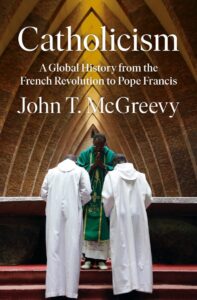
John T. McGreevy, Catholicism: A Global History from the French Revolution to Pope Francis
W.W. Norton, September 6
Like it or not, the Roman Catholic Church is one of the most powerful institutions in the world. As such it contains many parallel and contradictory movements, from the arch-conservative traditionalism of America’s bishops to the more liberatory and egalitarian Catholicism from whence the current Pope comes. How does a religion so vast and multifaceted survive in the face of contemporary secularism? And what’s next for its billion practitioners? Historian John T. McGreevy attempts to answer these questions about the future (and many more) by looking back at the last two tumultuous centuries of the Catholic Church, from the French Revolution to the latest scandals of sexual abuse. –JD
Dipo Faloyin, Africa Is Not a Country
W.W. Norton, September 6
Though we live in notionally post-colonial times the colonial gaze is nonetheless alive and well, and remains the principal framework for the way western media tells stories about an entire continent. Countries in Africa are always “war-torn” or “poverty-stricken,” always suffering from famine or unrest or drought… In his new book, Africa Is Not a Country, journalist Dipo Faloyin sets out to provide balance to some of that evening news miserabilism with a nuanced, thorough, and hopeful look at life in modern-day Africa. Loosely told as a history of seven dictatorships, Faloyin takes us from the urban realities of Lagos to the intensely joyful soccer rivalries of the African Cup of Nations, pausing to call out a post-colonial white savior industrial complex that has caused as much trouble as it has helped. –JD
Stephen King, Fairy Tale
Scribner, September 6
This new Stephen King fantasy novel is bringing me right back to my childhood. It’s big (608 pages!), it’s magical (a portal to another world in the backyard!), it’s epic (a boy and his dog leading the fight against evil). Just what I need to help me escape this hellish timeline for a little while. –ET
Max Fisher, The Chaos Machine: The Inside Story of How Social Media Rewired Our Minds and Our World
Little, Brown, September 6
If you asked a hundred devoted social media users if TikTok/Facebook/Twitter et al. was a net good for the world, the overwhelming answer would be NO. So why is everyone dedicated to spending time doing something they don’t even like? Well, it’s by design. Literally. Max Fisher’s The Chaos Machine is a deep dive into the strategies employed by tech giants to create the most addictive possible platforms for users, all in the name of “engagement.” But it’s more than mere distraction: Silicon Valley algorithms have long-favored the lurid, the titillating, and the sensational—irrespective of any connection to reality—and have essentially created generations of dopamine-hungry screen addicts (hi!) at the mercy of their phones and the lies they tell. The toll it’s all taken on democracy as we know it, though, has yet to be fully understood. –JD
Ling Ma, Bliss Montage
FSG, September 13
Hell yeah, new Ling Ma, and with a delectable cover to boot (by Tim Witherow, with creative direction by Rodrigo Corral). This short story collection by the author of the emotionally-prescient 2018 NYC pandemic novel Severance includes eight dreamy stories, each with a foot in the fantastic and the other foot firmly in the appalling everyday. –ET
Agatha Christie, Marple: Twelve New Mysteries
William Morrow, September 13
Our favorite detective is back in this collection of original short stories. Gathering twelve different writers (Naomi Alderman, Leigh Bardugo, and Alyssa Cole, to name a few), the collection reimagines Miss Marple. Through these reiterations of one of Christie’s most famous detectives, the collection balances the work of preserving Miss Marple’s idiosyncrasies, while bringing to the surface new elements, new facets. –SK
Meghan Gilliss, Lungfish
Catapult, September 13
What exactly is a lungfish? I’m glad you asked. It was the first thing I googled when I saw the title of this novel. They are apparently freshwater vertebrates that can (wait for it) breathe air. In fact, they can even survive without food or water, on land, for up to five years. They plunge themselves into a sort of hibernation, a suspended animation. Lungfish is a fitting title for a book about a woman very much in an in-between state. She finds herself on an island, once inhabited by her grandmother. Her husband is a recovering addict, and her young daughter is a handful. She’s just trying to get by, and in this survival mode, a beautiful story of the self emerges. –KY
Angie Cruz, How Not to Drown in a Glass of Water
Flatiron, September 13
The premise of Angie Cruz’s latest is giving me big Neapolitan-novels-meets-Topics-of-Conversations vibes. Over the course of 12 sessions with a job counselor, 50-something Cara Romero, recently laid off from her factory job, narrates the story of her life—one of love affairs and sisterhood, labor and debt, motherhood and estrangement. I can’t wait to fall into this one. –ES
David Milch, Life’s Work: A Memoir
Random House, September 13
“I’m on a boat sailing to some island where I don’t know anybody. A boat someone is operating and we aren’t in touch.” If you read Mark Singer’s brilliant. heartbreaking New Yorker profile of David Milch back in 2019, you’ll know that the Deadwood creator is fighting a losing battle with Alzheimer’s disease. This memoir—an account of a tumultuous life marked by successes and self-immolations, acclaim and addiction—may be the final word of one of the greatest television writers of all time. As a Deadwood superfan, I shall be hoovering this up the week of its release. –DS
Elisa Gabbert, Normal Distance
Soft Skull, September 13
Elisa Gabbert’s writing always moves in unexpected directions. The author of four poetry collections and two essay collections—including The Unreality of Memory, a series of essays on our relationship to disaster—she’s releasing a new poetry collection, Normal Distance, which promises to include her signature combination of observational insights, philosophical wanderings, and contemporary questions about language. –CS
T.C. Boyle, I Walk Between Raindrops: Stories
Ecco, September 13
Is it weird to say that TC Boyle is underrated at this point? Is it because he writes… too much? Anyway, I’m a big fan of Boyle’s rollicking, propulsive style of storytelling, which is generally employed in aid of revealing the many ways in which contemporary life can feel pretty fucked up, you know? Yeah, you know. I’m looking forward to microdosing these short stories. –JD
Jonathan Dee, Sugar Street
Grove Press, September 13
The unnamed narrator of Sugar Street is attempting the impossible: to erase his identity and his past, and start over as a new, reformed person. We meet him as he’s driving backroads, evading surveillance cameras that could track his journey, with all his savings cashed out and in the car with him: he will begin his life anew with this cash and nothing else, in a town where no one will know him. The narrator wishes to leave behind his “life of privilege” and exist fully anew, trying to be a good person and make up for his wrongs. Meeting the narrator for the first time as he begins his life on the run adds another layer to his quest of starting over: the reader must believe everything he says, until we slowly but surely find our way to the answers of what exactly he is running from. Eye-opening in more ways than one, Sugar Street offers a unique portrait of whiteness and skewed liberalism. –JH
Jim Harrison, The Search for the Genuine: Nonfiction 1970-2015
Grove Press, September 13
When the famed American poet, novelist, and essayist Jim Harrison died in 2016, he left behind a prodigious body of work that included over three dozen books (the most famous of which, Legends of the Fall, he wrote in nine days) as well as a small mountain of acclaimed nonfiction pieces. The Search for the Genuine brings together the very best of these pieces—on everything from Zen Buddhism to shark-tagging, the poems of Pablo Neruda to life on the U.S./Mexico border—and is a must read for devotees and newcomers alike. –DS
Elissa Bassist, Hysterical: A Memoir
Hachette, September 13
In a 2010 Dear Sugar column, Cheryl Strayed (now famously) told Elissa Bassist to “write like a motherfucker.” This was in response to (then 26-year-old) Bassist’s fears of “writing like a girl”: “I write about my lady life experiences, and that usually comes out as unfiltered emotion, unrequited love, and eventual discussion of my vagina as metaphor.” Strayed’s advice clearly landed, because Bassist’s debut memoir is a response to the lifelong imperative she felt to keep quiet and repress her feelings (i.e. rage). I imagine this one will feel cathartic for a lot of women feeling, oh, pretty fucking angry these days. –ES
Andrea Wulf, Magnificent Rebels: The First Romantics and the Invention of the Self
Knopf, September 13
In Andrea Wulf’s biography of the young Romantics/Jena Romanticism, the poets Goethe, Schiller, and Novalis meet with philosophers Fichte, Schelling, and Hegel, and even Alexander von Humboldt (of whom Wulf wrote a wonderful biography in 2016) makes an appearance. An examination of the thinkers who questioned the creative potential of the individual, self-determinism, and the meaning of freedom, Wulf’s research mirrors the “extremely modern tension between the dangers of selfishness and the thrilling possibilities of free will.” –EF
Sandra Cisneros, Woman Without Shame
Knopf, September 13
Sandra Cisneros is widely acclaimed for her numerous works of fiction, performance, and more; this is her first poetry collection in 28 years. Described as a combination of “songs, elegies, and declarations,” the collection looks like a journey toward self-understanding for Cisneros and, possibly, a homecoming. –CS
Kate Beaton, Ducks: Two Years in the Oil Sands
Drawn and Quarterly, September 13
You really can’t ever go wrong with Drawn & Quarterly. Pretty much anything the Montreal comics house publishes will be gold, and the same could be said of Canadian cartoonist and Hark! A Vagrant author Kate Beaton, whose first full length graphic narrative Ducks: Two Years in the Oil Sands—a tale of loneliness and labor in the Albertan oil fields, where the Beaton, an Nova Scotia native, went to work at the age of 21—has already garnered rave reviews from Alison Bechdel, Chris Ware, Patricia Lockwood, and Carmen Maria Machado, among many others. –DS
Andrea Barrett, Natural History: Stories
W.W. Norton, September 13
Andrea Barrett is a much-beloved (and National Book Award-winning) novelist and short story writer, and we’re lucky that she’s gifting us another gorgeous collection. She is a master at exploring both the natural and internal landscapes of her characters. Fans know that she has a magical way of spilling the wonders of the world onto the page. When I think of this collection, I think of a butterfly: of those artists who can pin the wings to the page just so. The way she chains the characters together in these linked stories is also very much the butterfly effect: a powerful statement about the ripples we send into the world, the ways we are connected to others without even realizing it. –KY
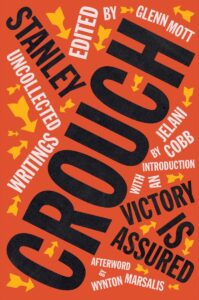
Stanley Crouch, Victory Is Assured: Uncollected Writings of Stanley Crouch
Liveright, September 13
Legendary critic (of jazz, of movies, of books, of culture) Stanley Crouch wasn’t for everyone, possessed as he was of a gruff and candid erudition that could certainly come across as dismissive (to say the least). But I’m pretty excited about these posthumously discovered essays (on his computer!) that range in topic from Malcolm X to Quentin Tarantino. With an introduction by Jelani Cobb. –JD
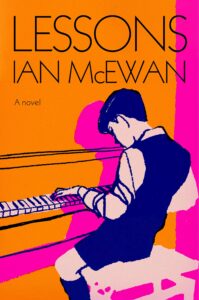
Ian McEwan, Lessons
Knopf, September 13
A journey through history—from just post-WWII to the current pandemic—through the experiences of a single man, who we first meet as an 11-year-old at boarding school and who we follow through traumas, opportunities, and questions both personal and global. –ET
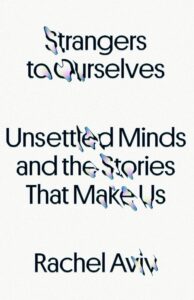
Rachel Aviv, Strangers to Ourselves: Unsettled Minds and the Stories That Make Us
FSG, September 13
Rachel Aviv’s New Yorker pieces are always stunning portraits of people in crisis, but her stories of complex medical mysteries are some of the most striking and memorable pieces of journalism I’ve read. In her debut nonfiction book, Aviv investigates people who have “come up against the limits of psychiatric explanations for who they are”—a woman who lives as a saint, an incarcerated mother recovering after psychosis, a man looking for revenge on psychoanalysts. In examining the way we tell stories about disorders of the mind, Aviv questions the very core of what is normal and what is reality. An incredibly researched, empathetic, and moving book. –EF
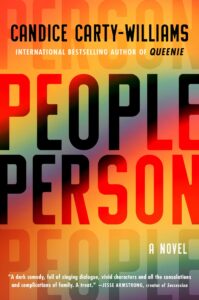
Candice Carty-Williams, People Person
Gallery/Scout Press, September 13
You probably recognize Candice Carty-Williams’ name from her splashy 2019 debut novel, Queenie; I’m looking forward to her sophomore effort, People Person, making waves, too. It centers around Dimple Pennington, a 30-year-old burgeoning lifestyle influencer with little to show for herself beyond her follower count, whose four half siblings (and their mutual absentee father) are thrown suddenly back into her life. As someone with a bevy of paternal half siblings, I find it odd that those family dynamics are so absent from literary fiction—the untapped drama!—so I’m excited to see Carty-Williams bring them to the fore. –ES

David Means, Two Nurses, Smoking: Stories
FSG, September 13
The title story from David Means’s new collection was published in The New Yorker in May 2020, a month into the pandemic: a strange little story where two nurses, flirting over a cigarette, chronicle patients saved and lost. I remember reading it weeks after bringing my baby home from the hospital, in a different sort of world, and thinking that Means had gotten it exactly right—the depths of human despair, the light of empathy. Means is one of the most interesting short story writers working today, shining a light on the most intimate moments. There’s also a story here from the POV of a dog—a personal fave. I’m eager to read this collection. –EF
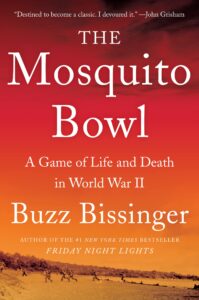
Buzz Bissinger, The Mosquito Bowl: A Game of Life and Death in World War II
Harper, September 13
The latest book from the Pulitzer Prize winning author of Friday Night Lights tells the story of one epic football game, played by the young men of the 4th and 29th Marine regiments—many of them former and future football stars—just a few months before the invasion of Okinawa, where fifteen of the players would be killed, making it the battle in which the most American athletes have ever died. –ET
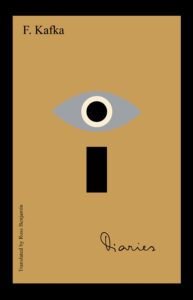
Franz Kafka, tr. Ross Benjamin, The Diaries of Franz Kafka
Schocken, September 13
In this new translation of Kafka’s diaries, Benjamin offers an unexpurgated collection of diary entries that highlight the quintessential Kafkian eccentricities underscoring the writer’s body of work. Beginning with 1909 and ending in 1923, the diary entries range from drawings to accounts of dreams to drafts of letters to daily events. Available in English for the first time, Benjamin’s translation not only emphasizes the significance of diaries in Kafka’s writing and larger life, but also highlights the importance of the diary-from as art in its own right. –SK
Susan Rogers and Ogi Ogas, This is What It Sounds Like: What the Music You Love Says About You
W.W. Norton, September 20
Why do you like the music you like? What is it about that song that makes you drive faster, run further? Why is it impossible for you not to dance when that band comes on? We all know how much music plays a part in our daily lives—how it makes us feel, how it helps us too feel—but what’s going on in our brains when it’s working its magic? Cognitive neuroscientist Susan Rogers (who was the chief engineer on Prince’s Purple Rain!) tries to answer that question by breaking down why we like what we like, and suggests that everyone has a unique “listener profile” based on seven basic elements of any song. –JD
Bobby Finger, The Old Place
G.P. Putnam’s Sons, September 20
Despite the fact that Bobby Finger had brought me countless hours of joy even before I picked this novel up (in the form of Who? Weekly, the podcast he co-hosts with Lindsey Weber), I was not prepared for how much I would love The Old Place. Set in the staid Texas town of Billington, the novel centers on Mary Alice Roth, a widow whose son is grown, and who has recently been forced out of her long-held teaching job, as she begins to rekindle a friendship with her neighbor Ellie—until a secret comes to light that threatens the life she’s built. Finger writes this town, and each of his characters, with deft tenderness. To read The Old Place is to be thoroughly immersed in a place you can’t help but love. –JG
Yiyun Li, The Book of Goose
FSG, September 20
Yiyun Li’s novel of young female friendship in post-WWII rural France has been called propulsive, gripping, and heartbreaking, which is how one would describe any of Li’s award-winning novels and stories. Fabienne and Agnès live in a backwater town, secluded in their private, imaginary world, until Fabienne hatches a plan that sends them to an English boarding school and onto a trajectory of fame and fortune built on an extraordinary lie. Any new novel from Li is one to watch. –EF
Lynda Barry, It’s So Magic
Drawn and Quarterly, September 20
You probably recognize Lynda Barry’s distinctive drawing style from her famous “Ernie Pook’s Comeek,” and subsequently from her books Cruddy, Syllabus, and most recently Making Comics. Fans of this seminal graphic artist will be delighted to know that this year brings us another book from the master. The central question at the heart of It’s So Magic is: How do you connect to the magic of living? It’s a very relatable worry. Amidst the backdrop of *gestures wildly around* all of this, It’s So Magic focuses on one family struggling to find its footing. Lynda Barry is sure to break our hearts but string them back together with the small, hope-giving things that make life worth living. –KY
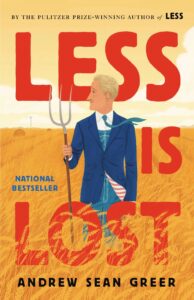
Andrew Sean Greer, Less Is Lost
Little, Brown, September 20
I remember devouring Andrew Sean Greer’s Pulitzer Prize-winning Less in a single afternoon, unable to pull myself away from its tender, lightly painful, and very, very funny portrayal of Arthur Less, a novelist on a world-wide tour, fleeing from heartbreak. Less Is Lost sees Arthur on another tour, this one across the US, and in flight from the death of an old lover and a financial crisis. I can’t wait to enter his world again. –JG
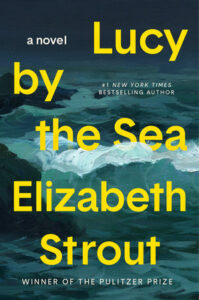
Elizabeth Strout, Lucy by the Sea
Random House, September 20
It’s always a pleasure to spend time in one of Elizabeth Strout’s ecosystems, in which great deep urgency and emotion lies beneath New England plainspokenness. Lucy by the Sea is the fourth novel in Strout’s Amgash series, which follows Lucy Barton, a writer freighted with deep childhood trauma. Lucy by the Sea finds Lucy fleeing New York for Maine at the beginning of the pandemic to stay with her on-again, off-again friend William. I can’t think of anyone better than Strout to render the fear and strangeness of those days with beautiful humanity. –JG
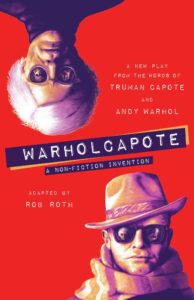
Rob Roth, WARHOLCAPOTE: A Non-Fiction Invention
Simon & Schuster, September 20
In 1978, Andy Warhol and Truman Capote recorded 80 hours of conversations in the hopes that the material would one day help them write a play together. Those plans never came to fruition, and the tapes sat in storage for years until playwright Rob Roth gained access to them (after extensive negotiations with the Andy Warhol Foundation and Capote’s estate). The tapes and their transcripts—which ran thousands of pages long—became Roth’s play WARHOLCAPOTE, a look at the collaboration between the two as they hang out, brainstorm, gossip, and share ideas. Having been produced at the American Repertory Theater in 2017, the play will now be available in book form for the first time. –CS
Stacey D’Erasmo, The Complicities
Algonquin Books, September 20
In Stacey D’Erasmo’s latest novel, Suzanne’s wealthy, comfortable world shatters after the revelation of her husband’s financial crimes. When he’s sent to prison, she tries to rebuild her life and create a new identity in a small beach town, severing all ties with him. Upon his release, with the demands for restitution coming from those he harmed, Suzanne must grapple with her own complicity–and what to do about it. Samantha Hunt calls The Complicities a “gripping, human tale of our crimes—financial, environmental, self-delusional” that is “impossible to put down.” –JG
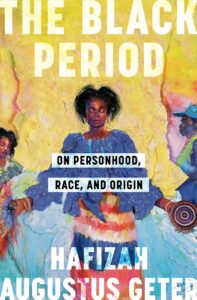
Hafizah Augustus Geter, The Black Period: On Personhood, Race, and Origin
Random House, September 20
This memoir by Hafizah Augustus Geter, grounded in the story of her relationship with her family, promises to be an exploration of Black and Muslim life, queerness, disability, and the systems that push people with those identities to the side—as well as the ways that they innovate to continue creating art and joyful community. I’m looking forward to reading this new work from her. –CS
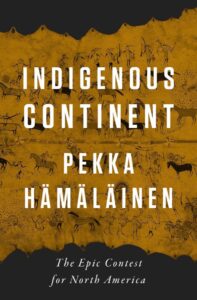
Pekka Hämäläinen, Indigenous Continent: The Epic Contest for North America
Liveright, September 20
In this volume, the prize-winning historian and Rhodes Professor of American History at Oxford University rewrites 400 years of American history through an Indigenous lens, creating “a sweeping counternarrative that shatters the most basic assumptions about American history.” This is sure to be fascinating reading for anyone who grew up hearing that same old foundational myth of America—you know, that one that doesn’t exactly hang together. –ET
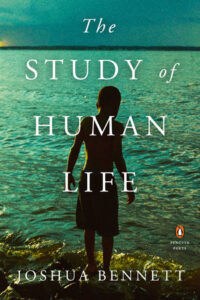
Joshua Bennett, The Study of Human Life
Penguin Books, September 20
Tracy K. Smith has described Joshua Bennett as an “astounding, dolorous, rejoicing” writer, and now—having received a Guggenheim Fellowship, a Whiting Award, a fellowship from the National Endowment for the Arts, and other recognition for his extensive work in poetry and criticism—he’s sharing another collection, The Study of Human Life. With a singularly expansive and compassionate view of history, Bennett sweeps across generations of joy, suffering, and connection. I’m looking forward to seeing what this new collection holds. –CS
Chelsea Martin, Tell Me I’m an Artist
Soft Skull, September 20
This book. Seriously, this book. My absolute favorite of the year: Tell Me I’m An Artist is a stunning, hilarious, perfect ode to growing up and growing into yourself as a girl, a person, a friend, a family member, and an artist. One of the most influential conversations I’ve had in my life was with a musician who told me that the self-doubt and shame I was going through in regards to my own music was not abnormal and wrong, but in fact a common side effect of trying to live as an artist, and I have never read such an honest and humble account of this process and acceptance until this novel. Joey is a student attending art school in San Francisco, but while her friends are clearly from well-off, privileged households, Joey grew up poor with her single mother and troubled, drug-addicted sister—who has abandoned her baby and is currently missing. Joey tries to balance the facts of her two worlds: the privileged bubble of art school where she feels out of place and alone, but excited and open, and the very real hardship that’s occurring in her family as she is trying to start over in San Francisco. Tell Me I’m an Artist is a masterpiece and a piece of comedic genius; I loved it and so will you. –JH
Nick Cave and Seán O’Hagan, Faith, Hope and Carnage
FSG, September 20
This is “a book about Nick Cave’s inner life” that draws on over forty hours of conversations with journalist Sean O’Hagan. I can only expect it will be bonkers (and fascinating). –ET
Namwali Serpell, The Furrows
Hogarth, September 27
Namwali Serpell’s latest book follows the fallout from a family’s tragic loss after their son disappears at the age of seven, his body never found. Serpell, who won the 2020 Windham-Campbell Prize for fiction and 2015 Caine Prize for African Writing, is one of the world’s most exciting contemporary novelists, and I’m eagerly anticipating this new work from her. –CS
Hua Hsu, Stay True: A Memoir
Doubleday, September 27
Hua Hsu’s memoir is an elegy for a friend lost to a senseless act of violence, and one of the finest and most heart-rending remembrances I’ve ever read. Hsu writes about grief and nostalgia, youth and identity, family and friendship, with elegant, heartbreaking clarity. I wanted to linger over every memory, to stay with Hsu as he rendered the vast expanses of time that defined youth—car rides, browsing at record stores, collaging together an identity from loves and hates. This is a book of exquisite pain and beauty. Absolutely unmissable. –JG
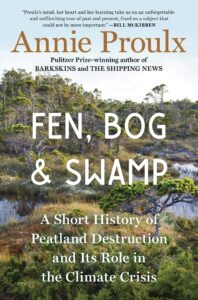
Annie Proulx, Fen, Bog and Swamp: A Short History of Peatland Destruction and Its Role in the Climate Crisis
Scribner, September 27
A lifelong environmental activist whose fictions are infused with a deep appreciation for the natural world, Annie Proulx (The Shipping News, “Brokeback Mountain,” Barkskins) seems the ideal guide to the world’s wetlands and the vital but little understood role they play in maintaining ecological balance. In Fen, Bog and Swamp, the Pulitzer- and National Book Award-winning author takes us on a journey from Canada’s Hudson Bay lowlands to Russia’s Great Vasyugan Mire, from the fens of 16th-century England to the 19th-century Amazon Rainforest, and issues a stark warning about the degradation of the natural world. –DS
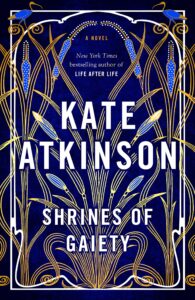
Kate Atkinson, Shrines of Gaiety
Doubleday, September 27
A new Kate Atkinson novel is always a cause for celebration in my house. Shrines of Gaiety—set in the world of 1920s London nightlife—sounds like it will beautifully combine elements of—Atkinson’s previous standalone novels (Life After Life and A God In Ruins, both set in the years during and between the two wars) and her Jackson Brodie crime novels. It tells the story of Nellie Coker, a ruthless, ambitious nightlife queen and mother of six whose success has made her a target for all manner of enemies. –JG
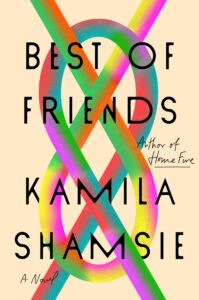
Kamila Shamsie, Best of Friends
Riverhead, September 27
Have you ever had a longtime friend with whom you shared surprisingly little—even down to values? That describes Zahra and Maryam, close since their childhoods in Karachi, with much unspoken between them (including those pesky values, as well as a dramatic event from their adolescence), until something happens that forces everything to the surface. If you love a complicated friendship story, this one’s for you. –ES









